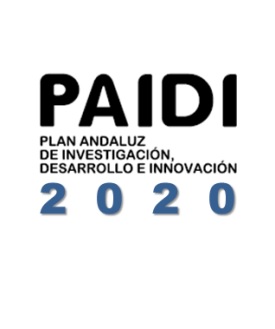Real time predictive optimization based on machine learning. Application to HVAC systems.
- Principal investigator
- Daniel Rodríguez Ramírez
- Funded by
- Junta de Andalucía, PAIDI 2020 (P20_00546)
This project aims to develop new techniques for efficient and secure management
of complex systems within the framework of Industry 4.0, based on new modeling and learning techniques, predictive optimization, and certification of safe operation. The proposed methodologies will be validated in a representative case of this paradigm: the optimal management of the air conditioning system of a smart building.
This project will lead to new methodologies for creating predictive models using digital twins of the systems to be managed, and inference techniques based on historical data reinforced with data available through the IoT. Appropriate techniques will be proposed to characterize the potential behaviors of the system due to changes in its use or demands. Based on these developments, the aim is to contribute to the development of optimal and secure management algorithms for the system, taking into account data-based predictions for the characterized types of use.
While the methodologies developed in the project are potentially applicable to a wide range of systems, this project will focus on their application to air conditioning systems due to their importance and high impact on our economy. Air conditioning systems manage energy resources of great importance and are a characteristic example of the Industry 4.0 paradigm: a high level of sensorization that integrates IoT and dedicated information and management systems (Building Management System: BMS). These systems exhibit a wide range of scenarios and modes of operation, types of use, and security constraints. Moreover, in Spain, they account for 14% of the final energy consumed, surpassing the equivalent of 10 million tons of oil per year. Therefore, optimizing their energy consumption is important. On the other hand, they are highly available systems with high requirements for maintaining the required comfort levels. Thus, the management not only needs to be optimal but also secure and resilient to different uses/scenarios. All of this leads to great difficulties in achieving optimal management. The new paradigm based on artificial intelligence, data, and IoT provides new opportunities for efficient and secure management of such systems.
The expected results of this project will lead to increased efficiency and safety in the operation of complex systems. In the specific case of air conditioning systems, these results will translate into energy savings and improvements in comfort levels. The results of the project will be validated on a real building, being the case study a two-storey building (L3 in the figure) where there are 43 climate-controlled rooms for various uses, such as offices and meetings. The dimensions of the building are 43m x
18m x 15m. It has a centralized water-based HVAC system powered by a chiller unit for both heating and cooling, which is shared with another building (L1 in the figure) adjacent to the one being considered. The nominal power of this chiller unit is 86.4 kW, and the nominal water flow is 60m3/h. Additionally, the primary system of the HVAC system currently includes a sensor network deployed to measure flows, temperatures, and various related variables for energy and thermal analysis. This network also includes the sensorization of the Air Handling Units (AHU) that circulate air in the rooms. Therefore, the next necessary step would be to deploy a wireless sensor network in the rooms and the corresponding fan-coil units to measure the variables of the secondary system, completing the characterization of the building.



